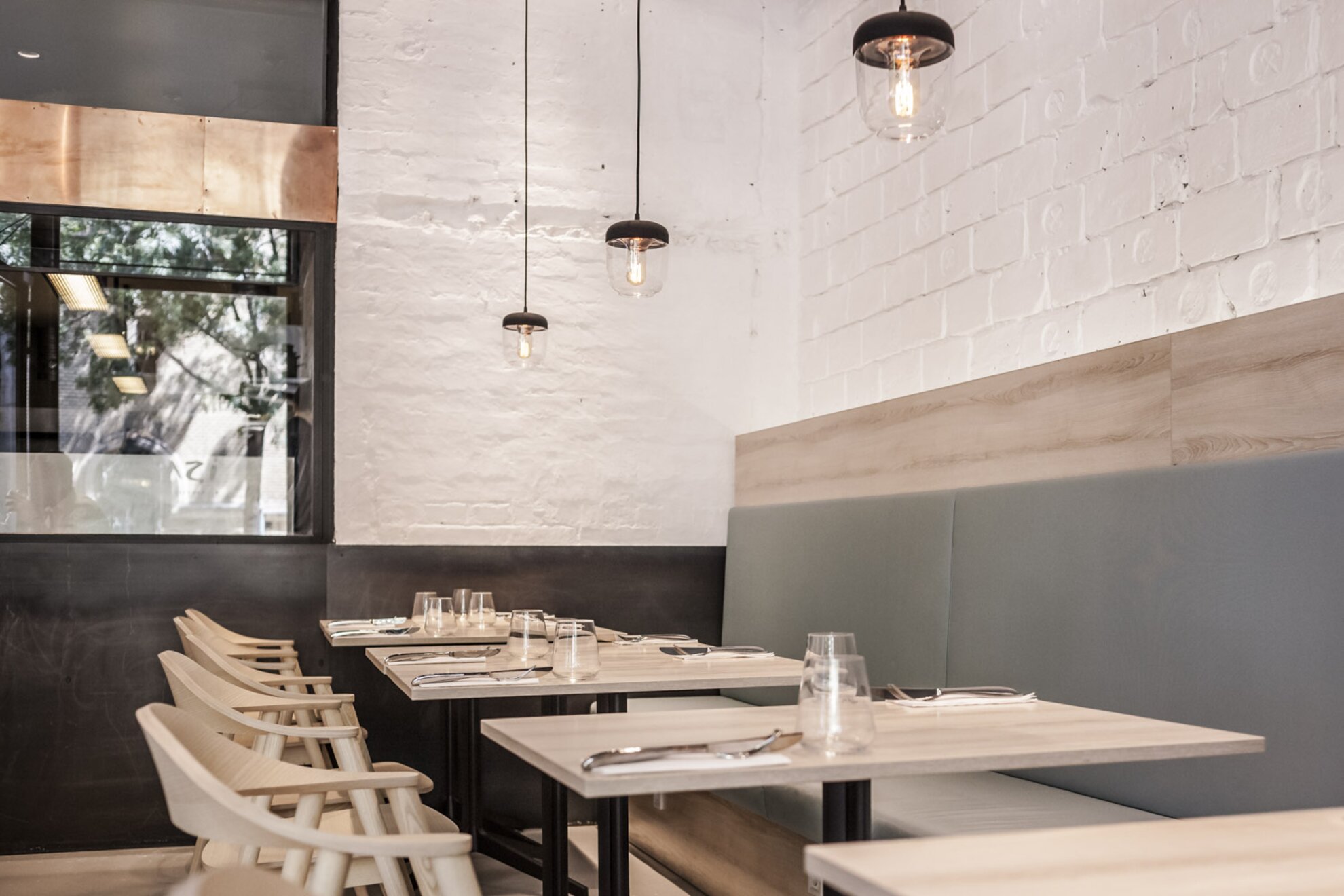Even though an amazingly diverse gastronomy developed over the millennia in the cultural crossroads of Greece, most people tend to believe that Greek cuisine is limited to the greasy gyros available on every corner in Budapest. Mazi would like to change this bad stereotype by offering a wide selection of authentic Greek dishes made exclusively from high-quality imported ingredients, served in a cleverly composed atmosphere. Thanks to them, we can now experience true Mediterranean hospitality here in Hungary’s capital.
There are relatively few places in the city where we can eat authentic Greek dishes, and opinions vary on what can be called an authentic Mediterranean dish. We’ll let the experts decide on that, but we know for a fact that Mazi offers something we rarely get to experience in the city: the opportunity to have a grand Greek feast with plenty of items on the menu that we can usually only taste on Aegean islands.

The restaurant impressed us as soon as we stepped in: the ambience, created by interior designer Gáspár Bonta, combines a familiar, friendly atmosphere and contemporary design with a touch of sea-scented Greek vibes.

The menu only enhances the visual experience, featuring 40 authentic dishes. In addition to the well-known classics – like the moussaka (baked eggplant with lamb and feta cream) for 3,260 forints, hot pepper spiced cheese cream (1,020 HUF), or their real-deal kebab (2,760 HUF) – they also have many lesser-known dishes. We managed to taste a lot of items in the spirit of Mediterranean hospitality, including the vegetable dakos (1,290 HUF), some baked shells (1,480 HUF), grilled octopus (2,780 HUF), Crete salad, and a huge Greek feta burger (2,650 HUF).

It’s important to note that the food here isn’t strictly traditional, but this reflects how Greek cuisine is also constantly changing.

Even the most inexperienced gourmets might notice that Mazi’s food tasted a bit different from what we’re used to, which can be attributed to the ingredients imported straight from Greece. According to the native-Greek owner, Zisis Babanasis, a dish can only be authentic when made with the same ingredients that the original recipe was created with.

Despite the authenticity of the raw materials, the restaurant’s target audience isn’t Greeks living in Budapest (although they do enjoy being able to dine here as if they were at home), but Hungarians and foreign visitors. Mazi simply wants to prove that Greek cuisine is complex, rich, healthy, and delicious, and has much more to offer than gyros of dubious origin from the corner store.




